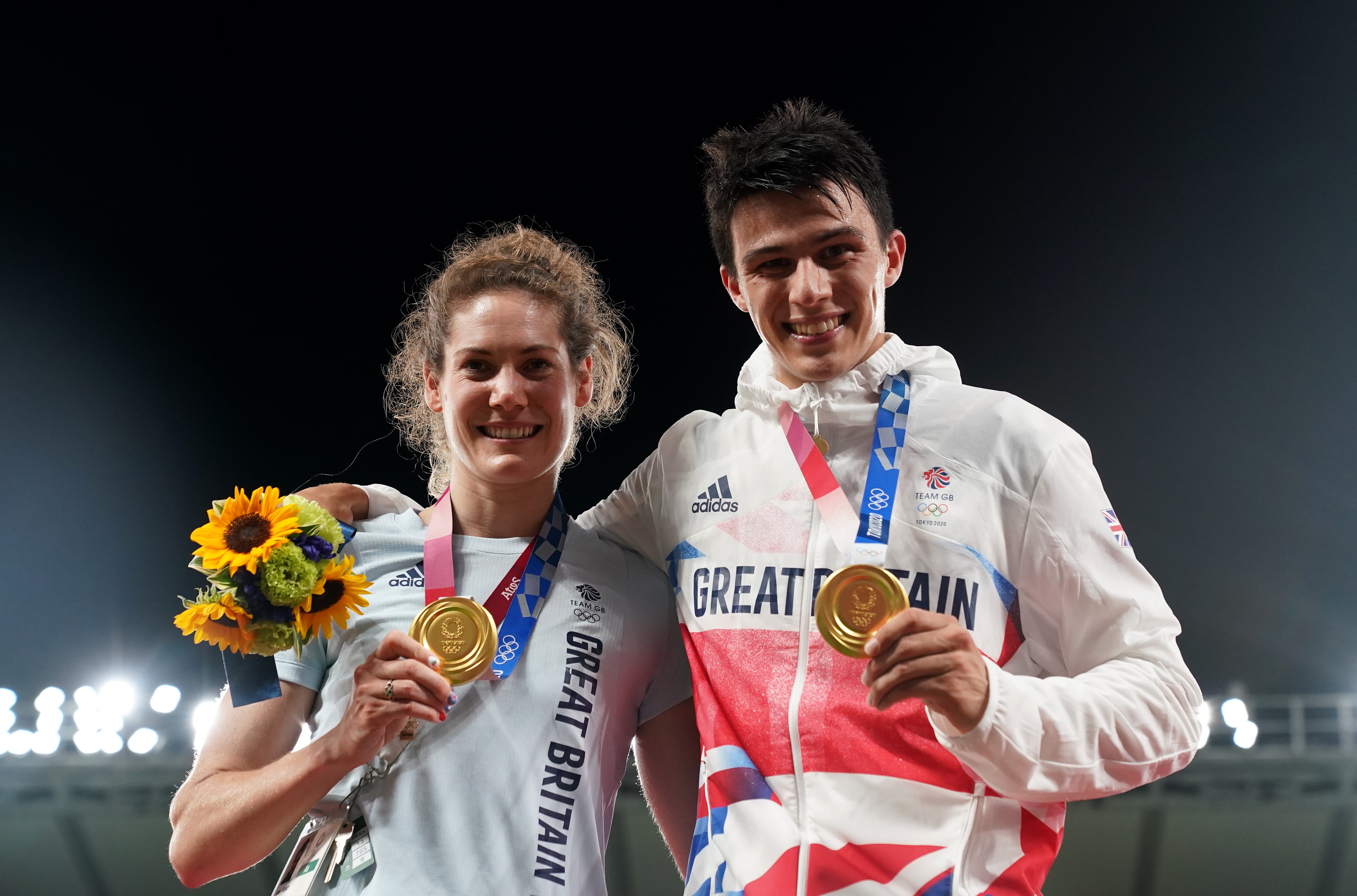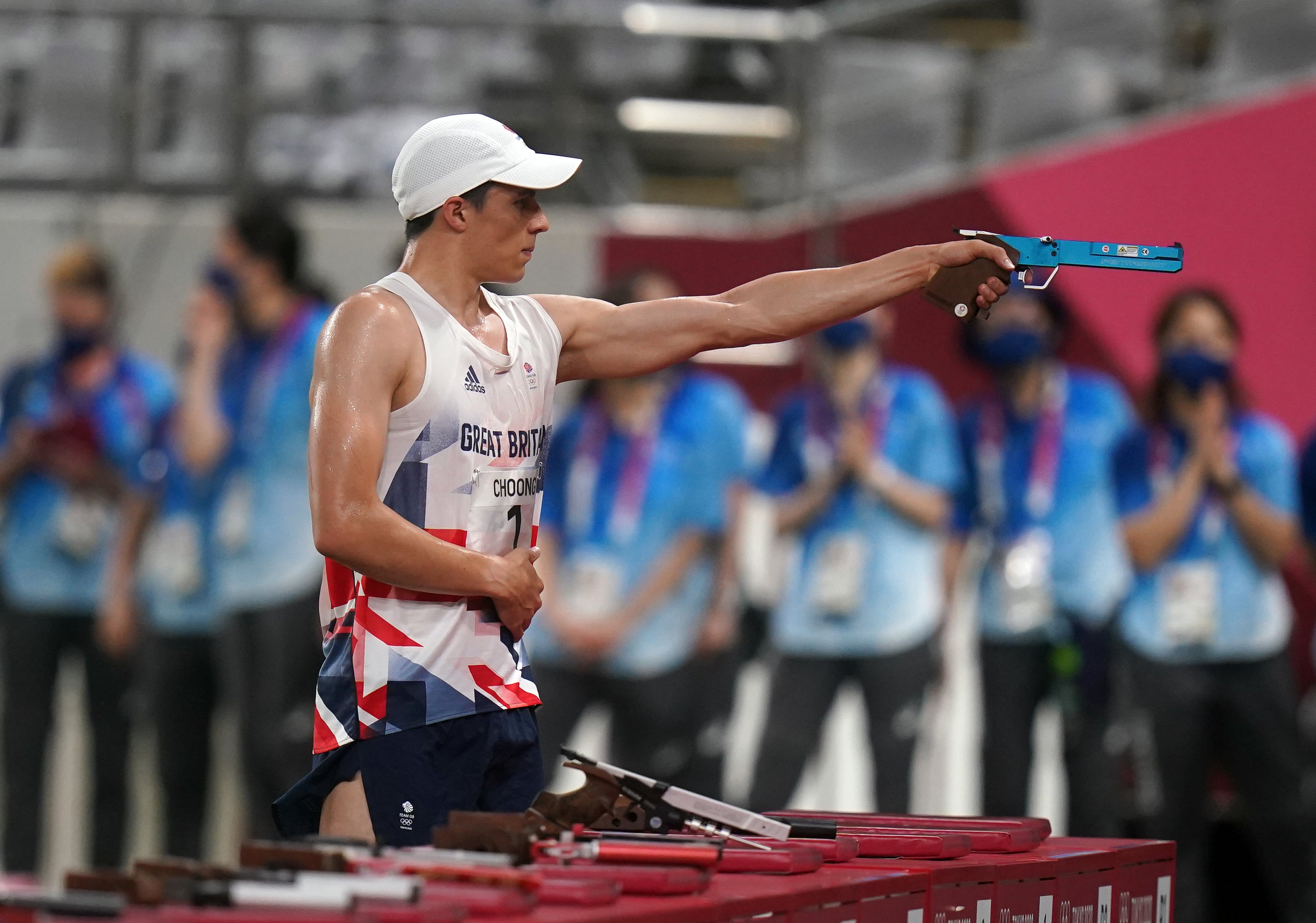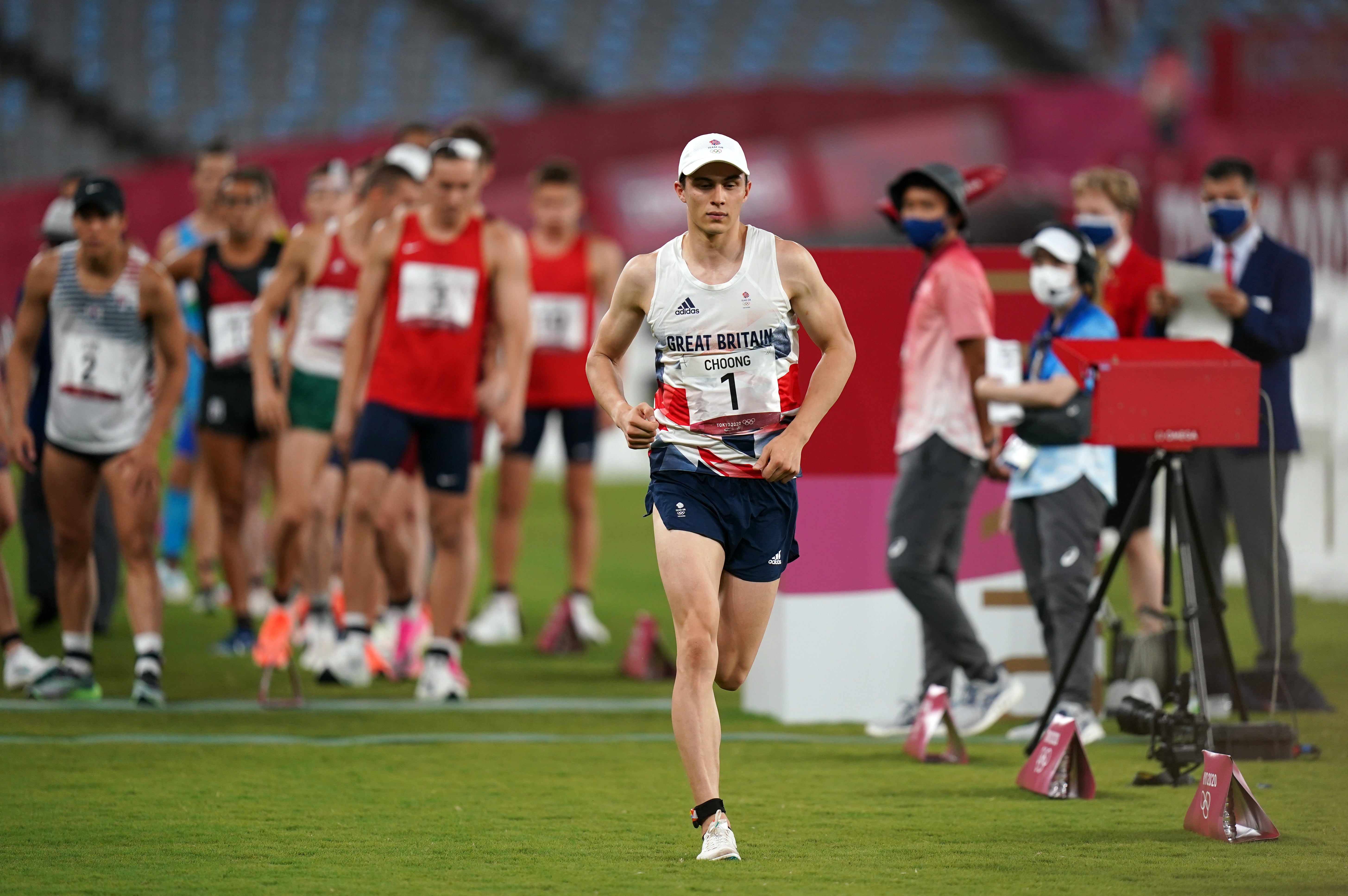Tokyo Olympics: Joe Choong hails role of makeshift garden shooting range on road to gold
The 26-year-old emulated Kate French to make it a golden double for GB in the event
Your support helps us to tell the story
From reproductive rights to climate change to Big Tech, The Independent is on the ground when the story is developing. Whether it's investigating the financials of Elon Musk's pro-Trump PAC or producing our latest documentary, 'The A Word', which shines a light on the American women fighting for reproductive rights, we know how important it is to parse out the facts from the messaging.
At such a critical moment in US history, we need reporters on the ground. Your donation allows us to keep sending journalists to speak to both sides of the story.
The Independent is trusted by Americans across the entire political spectrum. And unlike many other quality news outlets, we choose not to lock Americans out of our reporting and analysis with paywalls. We believe quality journalism should be available to everyone, paid for by those who can afford it.
Your support makes all the difference.Joe Choong credited the makeshift shooting range he set up in his back garden during lockdown for helping him regain the motivation for modern pentathlon that propelled him to Olympic gold in Tokyo
The 26-year-old made it a remarkable 24 hours for pentathletes from Kent after emulating Kate French by storming across the finish line at the Tokyo Stadium.
Men’s pentathlon has been in the Olympic programme since 1912 but Choong is the first Briton to win an individual medal, while no other country has ever claimed gold in both the men’s and women’s competitions at the same Games.
Choong led throughout the competition, holding off a late challenge from Egypt’s Ahmed ElGendy heading onto the final lap of the laser run.
The Bath-based athlete was one of the favourites for a medal having won the World Cup Final, which doubled as the test event, in 2019 and claiming world championship silver in the same year, but the pandemic changed everything.
He said: “At the end of 2019 I was world number one, I was winning medals pretty much every competition, so it was a pretty dark time mentally for me.
“I didn’t suffer anything severe but I was unmotivated. I didn’t train for a couple of weeks, just didn’t want to. I thought what’s the point?”
The turning point was when he and housemate Sam Curry, another pentathlete, decided to use the time to practise shooting in their garden.
“It started out as a bit of fun,” said Choong. “We just set up some targets under some steps. We guessed which step was the right height for a shooting range and counted to 10 when we strode to where we had a table.
“We just started shooting there, having some fun, attaching a target to ourselves and running while someone tried to hit us. It ended up being pretty decent training.”
Choong followed his younger brother Henry into the sport at school. He was picked as a wild card for the under-16 European Championships and ended up winning it.

“Obviously success is pretty fun, so I was encouraged to keep going, picking up the fencing and horse riding, and here I am today,” he said with a grin.
Choong made his Olympic debut in Rio and was second going into the laser run only to struggle with his shooting and finish 10th, prompting him to quip on Twitter about his Tinder profile and his trigger control.
He had a 12-second lead going into the laser run here after winning the fencing, coming third in the 200 metres freestyle swim and knocking down two fences in the show jumping, which avoided the sort of controversy seen in the women’s event.
Choong was still not totally happy with his shooting, missing the target three times on his first visit to the range, and ElGendy surged up from 13th to catch him.
But it soon became clear the British athlete had paced himself well and he broke away over the final 200m, sprinting across the finish line with a look of sheer delight on his face.
“I was still a bit shaky on the first shoot and on the others I was only too aware of what other people around me were doing, which is not something you want to be doing,” he said.
“But I won’t be making any more tweets like that, my girlfriend won’t be happy.”
Choong’s British team-mate Jamie Cooke, a former world and European champion, was unable to improve from his ninth place going into the laser run.

“It’s a mixed day,” said the 30-year-old. “It’s a little bit bittersweet. I’ve had some really good performances in the last few years and I really wanted to come here and put it all together, and I nearly did.
“But I’ve got to take my hat off to Joe and the other athletes, they were fantastic, and it’s a privilege to be alongside them and watch that success.”
Modern pentathlon’s spot in the Olympic programme has been the subject of ongoing debate, and the format will change significantly in Paris in 2024, with the field reduced from 36 to 18 athletes and all the action taking place within two hours.
That has been met with plenty of unhappiness among the athletes, although Choong understands the reasoning.

“I think the sport does need to evolve,” he said. “We’ve basically been told that, to keep up with how exciting some of the modern sports are.
“I will have to see how this new format suits me. It’s going to require a different set of skills. It’s whether I have them, whether I can adapt to have them and how much I want that. It is going to be difficult.”
Choong’s presence in Paris may well depend on whether Henry, who has turned his attention to pentathlon full-time after studying maths at Cambridge, makes the team.
“Obviously winning an Olympic medal is amazing but competing in an Olympics with my brother would be pretty close to that,” he said.
“I think that’s going to be a big factor if we can sort of pull him through at the training centre and get him to the level he needs to be. I think he can do it. He’s got the same blood as me so why not.”